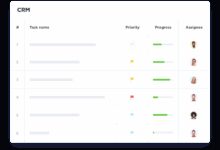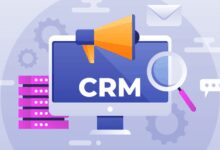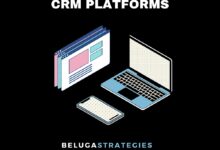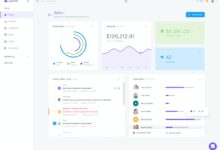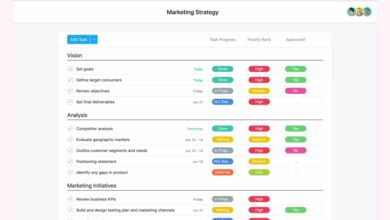CRM Software for Small Business: 7 Powerful Tools to Skyrocket Growth
Running a small business means wearing many hats—and managing customer relationships shouldn’t be the heaviest one. That’s where CRM software for small business comes in, offering smart, scalable solutions to streamline sales, marketing, and support—all in one place.
Why CRM Software for Small Business is a Game-Changer

Small businesses today face fierce competition, rising customer expectations, and limited resources. To stay ahead, they need tools that maximize efficiency without breaking the bank. CRM (Customer Relationship Management) software is no longer just for enterprise-level companies. Affordable, user-friendly CRM software for small business has become essential for growth, retention, and long-term success.
Streamlines Communication Across Teams
One of the biggest challenges small businesses face is fragmented communication. Sales, marketing, and customer service teams often operate in silos, leading to missed opportunities and inconsistent customer experiences. A centralized CRM system breaks down these walls.
- Shared access to customer data ensures everyone is on the same page.
- Automated workflows reduce manual follow-ups and prevent tasks from slipping through the cracks.
- Real-time updates keep team members informed about customer interactions, regardless of department.
For example, when a lead is converted by sales, marketing can instantly tailor follow-up campaigns, while support teams are prepped with relevant history—creating a seamless journey for the customer.
Boosts Sales Efficiency and Forecasting
Sales teams in small businesses often juggle multiple leads with limited time. CRM software for small business automates lead tracking, prioritization, and follow-up, allowing reps to focus on closing deals rather than administrative tasks.
- Automated lead scoring identifies high-potential prospects.
- Sales pipelines provide visual tracking of deals from initial contact to close.
- Forecasting tools use historical data to predict revenue, helping with planning and resource allocation.
“A CRM doesn’t just organize your contacts—it transforms how you sell.” — HubSpot
According to a Nucleus Research study, businesses gain an average of $8.71 for every dollar spent on CRM, thanks to improved sales productivity.
Enhances Customer Retention and Satisfaction
Acquiring a new customer can cost five times more than retaining an existing one. CRM software for small business helps nurture long-term relationships by keeping every interaction logged and accessible.
- Personalized communication based on purchase history and preferences.
- Automated birthday or anniversary messages to strengthen emotional connections.
- Quick resolution of support tickets with full context from past interactions.
When customers feel understood and valued, they’re more likely to stay loyal and refer others—fueling organic growth.
Top 7 CRM Software for Small Business in 2024
With dozens of CRM platforms on the market, choosing the right one can be overwhelming. We’ve evaluated the top contenders based on ease of use, pricing, scalability, and features tailored to small businesses. Here are the seven most powerful CRM software for small business options available today.
1. HubSpot CRM
HubSpot CRM is widely regarded as the best free CRM for small businesses. It offers a robust set of tools at no cost, with seamless integration into marketing, sales, and service hubs as your business grows.
- Free Forever Plan: Includes contact management, deal tracking, email integration, and live chat.
- Intuitive Interface: Easy to set up and use, even for non-tech-savvy teams.
- Automation Features: Automate email sequences, task assignments, and follow-ups.
HubSpot’s ecosystem allows small businesses to scale without switching platforms. As your needs evolve, you can upgrade to paid tiers for advanced analytics, custom reporting, and workflow automation.
Learn more at HubSpot CRM.
2. Zoho CRM
Zoho CRM is a feature-rich platform designed specifically for small to mid-sized businesses. It combines affordability with enterprise-level capabilities, making it a favorite among growing startups.
- AI-Powered Assistant (Zia): Predicts deal closures, suggests next steps, and automates data entry.
- Customizable Sales Funnels: Tailor pipelines to match your unique sales process.
- Multi-Channel Communication: Manage emails, phone calls, social media, and live chat from one dashboard.
Zoho integrates with over 40 business applications, including Google Workspace, QuickBooks, and Mailchimp. Its pricing starts at just $14/user/month, making it one of the most cost-effective CRM software for small business solutions.
Explore Zoho CRM at Zoho CRM.
crm software for small business – Crm software for small business menjadi aspek penting yang dibahas di sini.
3. Salesforce Essentials
Salesforce, the global leader in CRM, offers Salesforce Essentials—a simplified version built for small businesses with up to 10 users.
- Mobile-First Design: Full functionality on smartphones and tablets.
- Pre-Built Templates: Jumpstart your CRM setup with industry-specific workflows.
- Strong Integration Ecosystem: Connects with hundreds of apps via AppExchange.
While more expensive than some competitors (starting at $25/user/month), Salesforce Essentials delivers enterprise-grade reliability and scalability. It’s ideal for small businesses planning rapid growth and international expansion.
Visit Salesforce Essentials for details.
4. Freshsales (by Freshworks)
Freshsales stands out for its AI-driven insights and intuitive design. It’s particularly well-suited for sales-heavy small businesses that rely on quick lead response and smart prioritization.
- Lead Scoring & Behavior Tracking: Automatically ranks leads based on engagement.
- Visual Deal Pipeline: Drag-and-drop interface for managing opportunities.
- Integrated Phone & Email: Make calls and send emails directly from the CRM.
Freshsales’ AI assistant, Freddy, provides real-time recommendations and predicts sales outcomes. Pricing starts at $15/user/month, with a free tier for up to 3 users.
Check it out at Freshsales.
5. Insightly
Insightly is perfect for small businesses that manage projects alongside customer relationships. It blends CRM with project management, making it ideal for service-based companies like consultants, agencies, and contractors.
- Project & Task Management: Track deliverables, deadlines, and team assignments.
- Relationship Mapping: Visualize connections between contacts, organizations, and opportunities.
- Workflow Automation: Automate repetitive tasks like follow-up emails and status updates.
Insightly integrates with G Suite, Microsoft 365, Mailchimp, and more. Plans start at $29/user/month, with a 14-day free trial.
Learn more: Insightly CRM.
6. Pipedrive
Pipedrive is built for sales-focused small businesses that want a visual, pipeline-driven approach to managing deals. Its simplicity and sales-centric design make it a top choice for startups and solo entrepreneurs.
- Visual Sales Pipeline: Clear, drag-and-drop interface to move deals through stages.
- Activity Reminders: Schedule calls, emails, and tasks with automatic reminders.
- Custom Reports: Track performance metrics like conversion rates and deal velocity.
Pipedrive also offers robust automation, email integration, and mobile access. Pricing starts at $14.90/user/month, with a 14-day free trial.
Visit Pipedrive to get started.
7. Agile CRM
Agile CRM combines sales, marketing, and service tools in one affordable package. It’s a great all-in-one solution for small businesses that want maximum functionality without complexity.
- Marketing Automation: Create email campaigns, landing pages, and web tracking.
- Customer Support Tools: Ticketing system, knowledge base, and live chat.
- Free Plan Available: Up to 10 users with basic CRM features.
Agile CRM integrates with Zapier, Google Apps, and social media platforms. Paid plans start at $9.99/user/month, making it one of the most budget-friendly CRM software for small business options.
Explore Agile CRM at Agile CRM.
crm software for small business – Crm software for small business menjadi aspek penting yang dibahas di sini.
Key Features to Look for in CRM Software for Small Business
Not all CRM systems are created equal. When evaluating CRM software for small business, focus on features that align with your goals, team size, and budget. Here are the most critical functionalities to prioritize.
Contact and Lead Management
The foundation of any CRM is its ability to store, organize, and enrich contact information. Look for systems that allow you to:
- Import contacts from email, spreadsheets, or social media.
- Tag and segment contacts by industry, location, behavior, or lifecycle stage.
- Track lead sources and assign ownership automatically.
A robust contact database ensures no lead falls through the cracks and enables personalized outreach at scale.
Sales Pipeline and Deal Tracking
A visual sales pipeline helps teams understand where each deal stands and what actions are needed next. Key features include:
- Customizable deal stages (e.g., Prospecting, Demo, Negotiation, Closed-Won).
- Dashboards showing pipeline health, average deal size, and win rates.
- Drag-and-drop functionality to move deals between stages.
This transparency improves forecasting accuracy and helps managers identify bottlenecks in the sales process.
Automation and Workflow Tools
Small teams can’t afford to waste time on repetitive tasks. Automation is a must-have in CRM software for small business. Look for:
- Email automation (e.g., follow-up sequences after a demo).
- Task assignment based on triggers (e.g., assign a support ticket when a customer replies).
- Data enrichment (e.g., auto-fill company details from a domain).
Automation not only saves time but also ensures consistency in customer communication.
How to Choose the Right CRM Software for Small Business
Selecting the right CRM isn’t just about features—it’s about fit. A tool that works for a tech startup might not suit a local retail store. Follow this step-by-step guide to make the best choice.
Assess Your Business Needs
Start by identifying your pain points. Are you losing leads? Struggling with follow-ups? Facing poor team collaboration? Map these challenges to CRM capabilities.
- Sales-heavy business? Prioritize pipeline management and lead scoring.
- Service-based? Look for ticketing, scheduling, and knowledge base features.
- Marketing-focused? Choose a CRM with email automation and campaign tracking.
Be honest about what you need now—and what you might need in 6–12 months.
Consider Ease of Use and Onboarding
The best CRM is the one your team will actually use. A complex system with a steep learning curve can lead to low adoption and wasted investment.
- Look for intuitive interfaces with minimal training required.
- Check if the vendor offers onboarding support, tutorials, or live training.
- Test the mobile app—many small business owners manage tasks on the go.
Platforms like HubSpot and Pipedrive excel in user-friendliness, making them ideal for non-technical teams.
Evaluate Integration Capabilities
Your CRM shouldn’t exist in isolation. It should connect seamlessly with tools you already use, such as:
- Email platforms (Gmail, Outlook)
- Accounting software (QuickBooks, Xero)
- Marketing tools (Mailchimp, Facebook Ads)
- Calendar apps (Google Calendar, Outlook)
Most modern CRM software for small business supports integrations via native connectors or third-party tools like Zapier. Confirm compatibility before committing.
Common Mistakes to Avoid When Implementing CRM Software
Even the best CRM can fail if implemented poorly. Small businesses often make avoidable mistakes that undermine ROI. Here’s how to steer clear of them.
crm software for small business – Crm software for small business menjadi aspek penting yang dibahas di sini.
Skipping Data Cleanup Before Migration
Migrating messy, outdated, or duplicate data into a new CRM will only amplify problems. Before importing, take time to:
- Remove inactive or invalid contacts.
- Standardize naming conventions (e.g., “Mr.” vs “Dr.”).
- Verify email addresses and phone numbers.
Clean data ensures accurate reporting and effective automation.
Over-Customizing Too Early
While customization is powerful, over-engineering your CRM from day one can lead to confusion and inefficiency. Start with default settings and basic workflows.
- Let your team get comfortable with core features.
- Gradually add custom fields, automations, or dashboards as needed.
- Document all changes to avoid chaos during onboarding.
Resist the urge to build a perfect system—focus on progress, not perfection.
Ignoring User Training and Adoption
A CRM is only as good as the people using it. If your team doesn’t understand or trust the system, they’ll revert to spreadsheets or sticky notes.
- Provide hands-on training sessions.
- Appoint a CRM champion to answer questions and encourage usage.
- Link CRM use to performance metrics (e.g., “Log every call to qualify for bonus”).
Regular check-ins and feedback loops help sustain adoption over time.
Real-World Benefits: How Small Businesses Win with CRM
Theoretical benefits are great, but real-world results matter more. Let’s look at how actual small businesses have transformed their operations using CRM software for small business.
Case Study: Local Marketing Agency Boosts Client Retention by 40%
A 10-person digital marketing agency in Austin struggled with inconsistent client communication and missed renewal deadlines. After implementing Zoho CRM, they:
- Automated monthly performance report delivery.
- Set up renewal reminders 30 days in advance.
- Tracked client feedback and satisfaction scores.
Within six months, client retention increased by 40%, and upsell opportunities rose by 25%.
Case Study: E-commerce Store Increases Repeat Sales by 35%
An online boutique selling handmade jewelry used spreadsheets to manage customers. After switching to HubSpot CRM, they leveraged segmentation and automation to:
- Send personalized birthday discounts.
- Recommend products based on past purchases.
- Re-engage inactive customers with targeted email campaigns.
Repeat customer purchases grew by 35% in just four months, significantly boosting lifetime value.
Case Study: HVAC Contractor Improves Scheduling Efficiency
A family-owned HVAC company with five technicians faced double bookings and missed appointments. They adopted Freshsales and integrated it with Google Calendar, enabling:
- Real-time job scheduling from mobile devices.
- Automated SMS reminders to customers.
- Post-service feedback requests.
Appointment no-shows dropped by 60%, and customer satisfaction scores improved dramatically.
Future Trends in CRM for Small Businesses
CRM technology is evolving rapidly, and small businesses can no longer afford to lag behind. Staying ahead means understanding emerging trends that will shape customer relationship management in the coming years.
AI and Predictive Analytics
Artificial intelligence is no longer science fiction—it’s a CRM reality. Modern platforms use AI to:
crm software for small business – Crm software for small business menjadi aspek penting yang dibahas di sini.
- Predict which leads are most likely to convert.
- Suggest optimal times to follow up.
- Automatically categorize emails and assign tasks.
For small businesses, AI levels the playing field, offering insights once reserved for large enterprises.
Mobile-First and Offline Access
With more teams working remotely or on-site, mobile CRM access is essential. Future CRM software for small business will prioritize:
- Offline mode for data entry in low-connectivity areas.
- Voice-to-text note-taking during client meetings.
- GPS-based visit tracking for field service teams.
Platforms like Salesforce and Zoho are already leading in this space.
Deeper Integration with E-commerce and Social Media
Customers interact across multiple channels—your CRM should too. Expect tighter integration with:
- Shopify, WooCommerce, and BigCommerce for real-time order and customer data.
- Instagram, Facebook, and WhatsApp for direct messaging and lead capture.
- Review platforms like Google Business and Yelp for reputation management.
Unified data across channels enables hyper-personalized experiences and faster response times.
What is CRM software for small business?
CRM software for small business is a digital tool that helps small companies manage customer interactions, track sales leads, automate marketing, and improve customer service—all in one centralized system.
Is there a free CRM software for small business?
Yes, several CRM platforms offer free plans ideal for small businesses, including HubSpot CRM, Agile CRM, and Zoho CRM. These free versions typically include core features like contact management, deal tracking, and email integration.
How much does CRM software cost for a small business?
Prices vary, but most CRM software for small business starts at $10–$15 per user per month. Some, like HubSpot, offer a free plan. Others charge based on features, number of contacts, or users.
Can CRM software integrate with my existing tools?
Yes, most modern CRM systems integrate with popular tools like Gmail, Outlook, QuickBooks, Mailchimp, and social media platforms—either natively or through third-party services like Zapier.
How long does it take to implement a CRM?
Simple CRMs can be set up in a day or two. More complex systems may take a few weeks, especially if you’re migrating large amounts of data or customizing workflows. Proper planning and training speed up adoption.
crm software for small business – Crm software for small business menjadi aspek penting yang dibahas di sini.
Choosing the right CRM software for small business isn’t just a tech decision—it’s a strategic move toward sustainable growth. From boosting sales efficiency to enhancing customer loyalty, the right CRM acts as the central nervous system of your business. Whether you opt for HubSpot’s simplicity, Zoho’s flexibility, or Pipedrive’s sales focus, the key is to start, stay consistent, and scale smartly. The future of small business success is relationship-driven—and CRM is the engine that powers it.
Recommended for you 👇
Further Reading:
